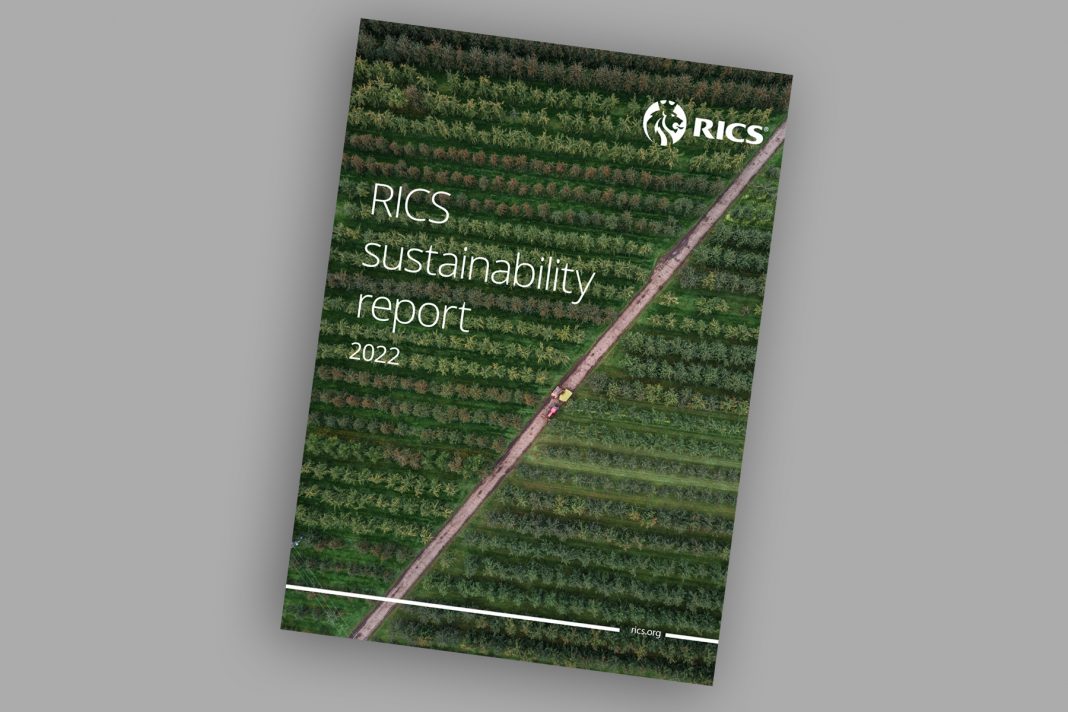A call to accelerate the growth of green building has come from surveyors in their annual sustainability report, which cites high costs or low availability of low carbon materials and skill shortages as being among the biggest hurdles.
The report also shows how growing demand for greener buildings is even leading to lower rents and sale prices for non-sustainable buildings.
Progress is being seen in some aspects of the built environment on the drive to be more sustainable, according to the report, by the Royal Institute of Chartered Surveyors, however the rate of advancement needs to accelerate significantly and become more widespread.
The 2022 RICS Sustainability Report, which collated sentiment from almost 4,000 chartered surveyor contributors, shows that some improvement in the push for sustainability has been made in the past year, notably in the commercial real estate sector as demand for green buildings continues to rise.
However, the data also shows there has been little or no change in some important areas in the past 12 months. Indeed, in construction, a significant share of professionals say they do not measure carbon emissions on projects.
The report continues: “As demand for sustainable buildings continues to increase not just in the UK but on a global scale, it is impacting both rents and prices, with a significant share of contributors seeing a market premium for sustainable buildings, and citing that non-green real estate assets are subject to a ‘brown discount’. For those buildings that aren’t classed as green or sustainable, 48% of respondents noted a reduction in rents, and around half also cited a reduction in sale prices in the UK, with both figures lower than as can be seen in the whole of Europe, with 57% of respondents noting ‘brown discount’ for rental properties, and 60% noting a ‘brown discount’ in prices.”
This year’s results also show that there is much room for improvement in measuring carbon emissions. 76% of professionals in the UK state that they make no operational measurement of carbon emissions on projects, which is in line with the whole of Europe, but slightly higher when compared globally (72%). With more than half of the UK respondents also saying that they don’t measure embodied carbon, even for those that do, less than 14% use it to select the materials they use in their project.
Kisa Zehra, RICS Sustainability Analyst, said: “It is of benefit to all to embrace climate strategy, and we must reduce our impact as the built environment. Behaviour change is happening, with higher rents and prices being seen for the more desirable sustainable properties, and climate risk assessments by investors on their built assets rising across the globe. But, measuring all forms of carbon, is also critical to the changes we need to see from the built environment.
“Barriers to progress cited in the report have included a lack of established standards, guidance and tools. However, it is equally fair to say that industry must adopt these tools and standards where they are available and should make carbon assessment and management an integral part of business practice. Industry needs to work in collaboration to succeed. The work RICS is leading with partners, for example the ICMS coalition in developing a cost measurement standard that combines cost and carbon reporting, is a key example.
“RICS will continue to promote research, and demand policy changes while working in collaboration with industry, governments and our professionals to increase the impact of the built environment on positive climate strategy.”












